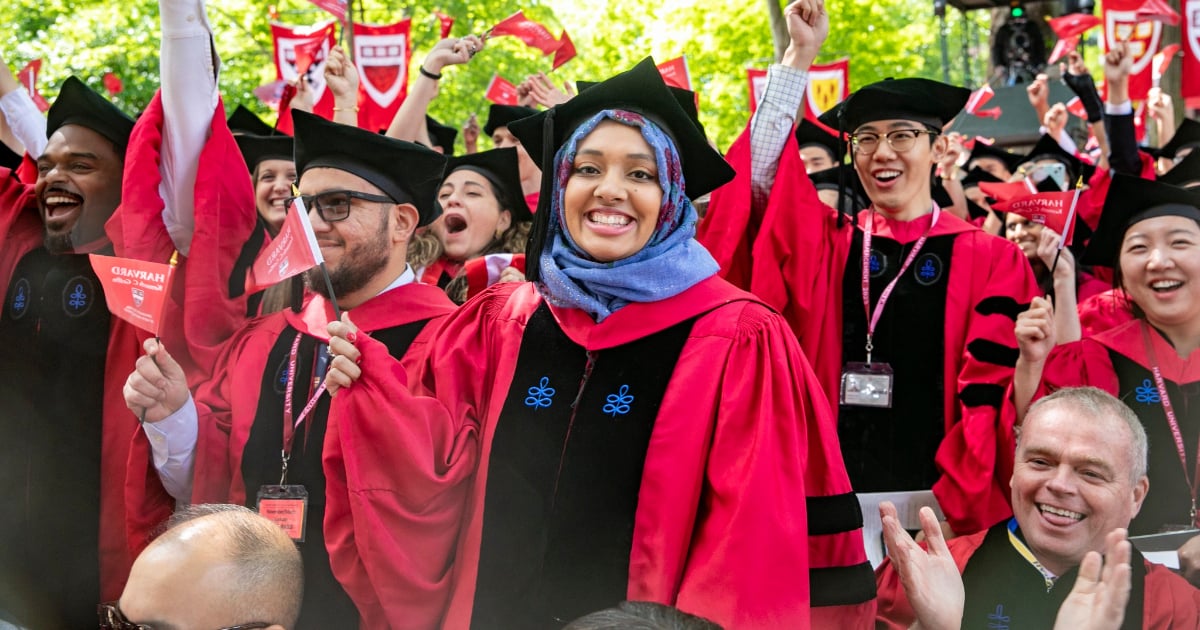In an unprecedented move that heightens the standoff between the White House and one of the nation's most esteemed universities, President Donald Trump's administration has rescinded Harvard University's authorization to enroll international students. This decision could have significant implications in both academic and diplomatic spheres.
The announcement was formally delivered in a letter sent on Thursday by Homeland Security Secretary Kristi Noem, stating that Harvard's Student and Exchange Visitor Program (SEVP) has been revoked immediately. "I write to inform you that effective immediately, Harvard University's Foreign Students and Visitors Program has been revoked," reads the letter signed by Noem.
This revocation comes amid heightened tensions between the federal government and Harvard, spurred by accusations from the Trump administration regarding alleged tolerance of antisemitism, censorship of conservative speech, and an insistence on implementing racial and gender inclusivity policies that, according to Washington, "undermine American values."
In a statement shared on social media, Secretary Noem declared, "This administration is holding Harvard accountable for fostering violence, antisemitism, and for collaborating with the Chinese Communist Party on its campus. Harvard had numerous chances to do the right thing. They refused. They have lost their SEVP certification for failing to comply with the law." She further warned, "Let this be a warning to all universities and academic institutions across the country."
The SEVP revocation means Harvard can no longer enroll or keep international students, directly impacting thousands of current international students and countless others planning to start their studies in the fall. Sources close to the university have described the move as "an unprecedented political attack on academic autonomy" and indicated that legal action is being considered. As of now, Harvard has not issued an official statement, though a response is anticipated soon.
This action joins a series of recent Trump administration decisions aimed at reshaping the American educational landscape with a controversial nationalist perspective, restricting foreign influences in universities, and challenging institutional approaches to diversity, equity, and inclusion.
Earlier this week, President Trump threatened to withdraw funding from the nation's leading educational institutions. Harvard, based in Cambridge, Massachusetts, is the wealthiest, receiving an endowment of $53 billion, an amount comparable to the GDP of Iceland, Madagascar, and Aruba combined, and exceeding that of over 120 countries, including Tunisia and Bahrain. Yale receives $41.4 billion.
In March, Trump also threatened to cut federal funds to universities that allowed student protests.
FAQs on Trump's Ban on International Students at Harvard
What prompted the Trump administration to revoke Harvard's SEVP?
The revocation was driven by allegations of Harvard's tolerance of antisemitism, censorship of conservative speech, and policies on racial and gender inclusivity, which the administration claims undermine American values.
How does this decision affect international students at Harvard?
The decision prevents Harvard from enrolling or retaining international students, impacting thousands currently enrolled and those planning to begin their studies.
What is the potential impact on Harvard's academic autonomy?
The move has been described as an unprecedented political attack on academic autonomy, with Harvard considering legal action in response.
